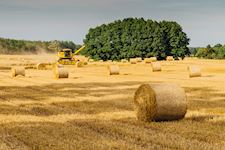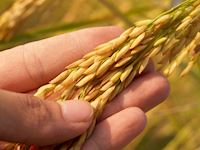Agronomy III - Endorsed Certificate Course (TQUK - Training Qualifications UK)
Distance learning course with study materials, tutor support and final exam included
Academy For Distance Learning
Summary
- Exam(s) / assessment(s) is included in price
- Tutor is available to students
Add to basket or enquire
Overview
Agronomy II (Grains).100 Hours Endorsed Certificate Course (TQUK - Training Qualifications UK).
The Grains industry both for animal and human consumption, is very extensive and crops include growing common grains like wheat and rice, plus uncommon grain crops, such as Amaranth and Soybeans.
The production of a large amount of staple foods worldwide is mechanised and produced on big farms, although there are many smaller scale enterprises as well. Regardless of the size of the enterprise, good quality seed and germination rates, the protection of seeds from diseases and pests, correct preparation in nutrient rich soil and sowing at the right time to take the best advantage of climate, moisture and temperature factors, are all vitally important to achieve success.
By completing this course, you will acquire a sound understanding of Agronomy as it relates to cereals, pulses and pseudo grains. As well as learning about different grains, you will gain skills regarding which species and cultivators you should choose. Making the right choices will enable you to employ efficient techniques to get the best harvest.
Those who will benefit from completing Agronomy II (Grains) include:
- Farmers, farm mangers and farm workers
- Farm equipment or service suppliers
- Agricultural professionals or students
- Farmers looking to move into new “specialised” crops
- Farm animal owners or managers wishing to produce food for their livestock
Benefits of an ADL Endorsed Course?
Endorsed courses are skills based. They have been evaluated and approved by an independent awarding body such as Training Qualifications UK (TQUK).
What makes ADL’s Endorsed courses different?
- Flexible Self-Paced Learning– adjust your learning around your home and work commitments
- Start and Finish at any time
- Courses globally and industry relevant
- Practical Component at the end of most lessons.
Allocated your own tutor relevant to your subject. You can have as little or as much contact as you like with your tutor. They are there to support you all the way through.
This course is endorsed by TQUK -Training Qualifications UK, an OFQUAL awarding body.
Achievement
Course media
Description
Lesson Structure:
1 Introduction to grains
- Introduction
- Production of crops in different climates and ecological zones
- Crop growing periods and growing degree days
- Cropping season as affected by moisture availability
- World cropping
- Cereal crop growth stages
- Grain types
- Production systems
2 Cereal/grain infrastructure and machinery requirements
- Introduction
- Equipment requirements
- Seed
- Harvest
- Grain storage
3 Wheat, triticale, spelt, barley, oats, rye.
- Wheat and Spelt
- Tritosecale
- Oats
- Barley
- Rye
4 Maize, Sorghum, millet
- Maize
- Sorghum
- Millet
5 Rice
- Introduction
- Rice (Orryza SPP.)
- Cultivation
- Crop health and diseases
- Harvest
6 Pulse crops
- Introduction
- Soybeans
- Pidgeon Peas (Congo beans)
- Lima beans
- Cowpeas
- Mung beans
- Chick peas
- Lentils
- Faba beans
- Field peas (Green peas)
7 Pseudo cereals
- Introduction
- Chia
- Quinoa
- Amaranth
- buckwheat
- Sesame seed
8 Processing grains for human consumption
- Introduction
- Post-harvest processing
- Storage
- Grain processing and consumption
- Wheat processing
- Processing maize (corn)
- Processing rice
- Processing oats
- Processing pseudograins
- Fortifying foods
9 Grains for livestock consumption
- Introduction
- C3 and C4 grasses
- Nutrient-dense forages and forage quality
Each lesson culminates in an assignment which is submitted to the academy, marked by the academy's tutors and returned to you with feedback, any relevant suggestions, comments, and if necessary, extra reading.
Who is this course for?
Horticulture Enthusiasts, Farmers, Agriculturists, Gardeners
Requirements
A pc or laptop with internet connection.
Career path
Agronomy offers many job opportunities. Demand for agronomists is strong; whether as a farmer, farm employer or providing technical support or marketing services in the agriculture sector.
Questions and answers
Currently there are no Q&As for this course. Be the first to ask a question.
Reviews
Currently there are no reviews for this course. Be the first to leave a review.
Legal information
This course is advertised on reed.co.uk by the Course Provider, whose terms and conditions apply. Purchases are made directly from the Course Provider, and as such, content and materials are supplied by the Course Provider directly. Reed is acting as agent and not reseller in relation to this course. Reed's only responsibility is to facilitate your payment for the course. It is your responsibility to review and agree to the Course Provider's terms and conditions and satisfy yourself as to the suitability of the course you intend to purchase. Reed will not have any responsibility for the content of the course and/or associated materials.





